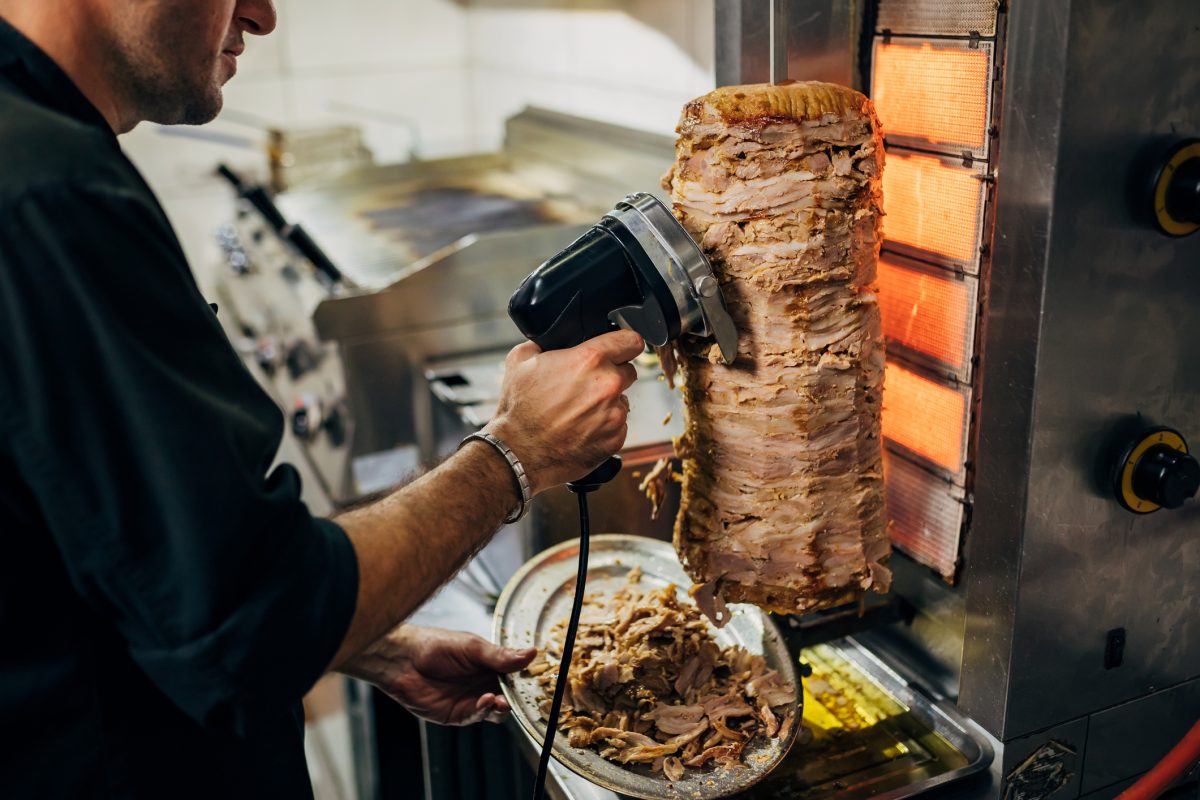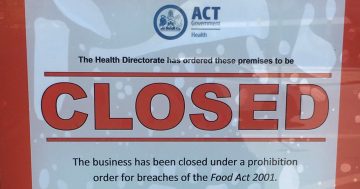
A Federal Health Department report has confirmed 14 people got salmonella from kebabs earlier this year. Photo: File.
Salmonella outbreaks at two Canberra kebab shops infected 14 people and left one person hospitalised earlier this year, a new report has confirmed.
A Federal Department of Health report found five people sought care at the Territory’s emergency departments following their infection.
Both outbreaks started at premises that had similar cleaning and sanitation issues.
Neither shop is named in the report.
Salmonella is usually caused by eating raw or undercooked meat, poultry, eggs or egg products. Its incubation period is between six hours and six days.
Symptoms include diarrhoea, stomach cramps, fever, nausea, vomiting, chills, a headache and blood in the stool.
In the first outbreak detected by routine surveillance, nine sick people reported having eaten from the same kebab shop between February and April.
Three could not remember or say where they had eaten before they got sick.
Salmonella was detected on meat samples, a cleaning cloth and shaving cloths at the restaurant, which was determined to have “inadequate cleaning and sanitising processes”.
Staff had been unable to detach the blade from the electric kebab shaving equipment used to cut meat which, in turn, limited proper cleaning, the report said.
“Kebab meat was either cut from the rotisserie and served directly to customers (particularly when the business was busy) or placed in a holding unit and further cooked on a hot plate before serving,” it read.
It also stated that cut rotisserie meat was shaved directly onto flatbread before being served.
The temperature of the meat in the holding unit was not at the correct level as it ranged from 56 and 74 degrees. Heated chicken must be stored in temperatures above 60 degrees.
In a second outbreak, two people infected with salmonella reported having eaten at a different kebab shop in June.
This shop reportedly had similar conditions to the first shop where staff struggled to dismantle the kebab shaver for cleaning.
Shaved meat was placed in a bain-marie, also known as a hot water bath, and set to 80 degrees. It was served without being cooked again.
“When the business was busy, additional meat was placed on top. Meat in the bain-marie was sampled at 56 degrees,” the report said.
Only one cleaning cloth from this premises returned a positive result for salmonella while most samples from the second restaurant returned negative results.
The report’s authors said as their data relied on self-reporting, more people could have been infected than was reported.
All 12 cases reported having diarrhoea; three had blood in their stool.
Cases ranged in age from six to 62.
Both shops were issued with improvement notices and staff were given education and training.
Salmonella was not detected at either shop in a follow-up inspection.
The full report, Kebabs with a Side of Salmonella, is available to download.
It’s not the first time kebabs have been linked to salmonella outbreaks.
Since these cases were reported, ACT Health has commenced a targeted food sampling program for kebab businesses, targeted education on cleaning and sanitising electric meat shavers, and a review of the need for a second kill step for shaved meats, the report stated.
Slater and Gordon Public Liability and Medical Law Practice Leader Liam Casey said people may have legal rights to redress if they had been struck down by the salmonella outbreak.
“If they suffered salmonella poisoning and have incurred any out-of-pocket expenses such as medical bills and loss of income, for example, they should seek legal advice regarding whether a personal injury claim can be pursued,” he said














